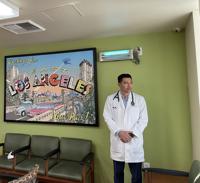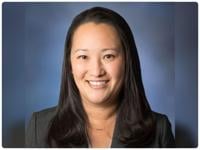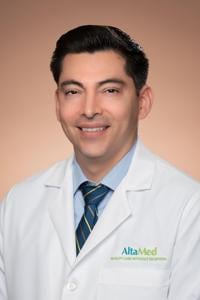A new California law will allow adults aged 26 to 49 to qualify for full-scope Medi-Cal health coverage, regardless of immigration status, starting January 1, 2024. The full-scope of Medi-Cal will cover more than just emergency care for residents. It will cover doctor visits, mental health care, preventative care, referrals, medicines, transportation and in-home services.
This initiative is modeled after the Young Adult Expansion and the Older Adult Expansion plans already in place. This latest expansion of full-scope Medi-Cal brings California closer to a healthier population. âCalifornia will become the first state to expand Medi-Cal to cover this population and represents the next largest expansion following the state’s May 1, 2022 expansion for undocumented residents 50 and older.
Barriers for immigrants
The U.S. Department of Homeland Security and U.S. Citizenship and Immigration Services agency do not consider receipt of health, food and housing benefits as part of the public charge determination. Therefore, using Medi-Cal benefits will not hurt an individual’s immigration status, according to the Department of Health Care Services.
A common barrier that many immigrants face when accessing any type of social service is the fear of being labeled as a public charge, which can make them ineligible for residency. “In 2019, changes to the public charge rule made it difficult for undocumented immigrants to receive permanent residence status. These changes expanded the share of noncitizen immigrants who could be considered a public charge from 3% included in the 1999 policy to 47% for the duration of the rule,” according to the Latino Policy & Politics Institute. By the end of 2022, the Biden administration had reversed these changes, but many experts say that fear and misinformation persist among immigrants.

Efrain Talamantes, MD, Chief Operating Officer at AltaMed Health Services. Photo courtesy of Efrain Talamantes.
L.A. Care
Phinney Ahn, Executive Director for Medi-Cal (Medicaid) at L.A. Care Health Plan, told CALÓ NEWS that an individual’s immigration status should not be a barrier for people applying or seeking Medi-Cal coverage. “People also need to know that Medi-Cal is not a public charge,” Ahn said.
L.A. Care Health Plan is the largest publicly-operated health plan in the U.S., serving some 2.9 million Angelenos. Ahn joined L.A. Care in 2003 and has held a variety of positions in Health Services, Quality Improvement, and most recently, serving as Chief of Staff from 2015 to 2018. She holds a master’s degree in public health from UCLA.
Ahn said that this new initiative is a big deal for the Latino community. “California is the first state to expand Medi-Cal so that low-income residents can qualify regardless of immigration or their status,” said Ahn. With this new expansion, Ahn also said that Los Angeles County is going to have a very impactful role given its diverse population. “I think this can make an impact on many members of the Latino community and other communities as well.
Medi-Cal benefits
âAs of now, Medi-Cal provides a core set of health benefits that include doctor visits, hospital care, immunization, pregnancy-related and more. The federal Affordable Care Act ensures all Medi-Cal health plans offer what are known as Essential Health Benefits (EHB), according to the Department of Health Care Social Services. To find out what these services are, visit the Medi-Cal Health Benefits webpage.
Ahn said that many local residents have shown interest in the last few Medi-Cal expansions, but there hasn’t been a lot of awareness about the program. In an effort to make sure that people have accurate and consistent information, L.A. Care makes sure to provide the community with a trusted source.
“We want to make it clear for individuals that they should not be worrying about Medi-Cal being considered a public charge. I really want to make sure that the message is clear to people who are interested in this expansion,” Ahn said.
In addition, Ahn said that if people need assistance navigating L.A. Care and Blue Shield Promise health plan, there are 12 community resource centers throughout LA County that will help them apply and answer any questions or concerns. To identify these locations, visit L.A. Care community resource centers.

Phinney Ahn, Executive Director for Medi-Cal (Medicaid) at L.A. Care Health Plan. Photo courtesy of Phinney Ahn.
Ahn said that she is aware that the state is one source of information, but she understands that different communities and individuals respond differently to trusted partners. “I think with the state issuing out consistent messaging, it helps that there are also community-based rights and legal rights organizations that can really help because they have strong connections to their communities,” Ahn said. “They may absolutely be more or better trusted among people in the community to get that trusted information.”
A total of 96,000 young adults benefited from the Young Adult Expansion plan when it passed in 2020. When the Older Adult Expansion plan passed, approximately 235,000 people benefited in 2022. This new Adult Expansion initiative can potentially cover 700,000 adults, according to the Latino Policy & Politics Institute. DHCS leaders believe that this will translate to approximately 274,000 new members in the coverage expansion population in Los Angeles County alone in 2024.
Ahn also told CALÓ NEWS that a lot of undocumented immigrants who are already enrolled in an emergency Medi-Cal plan will automatically be rolled over into the full-scope Medi-Cal plan next year.
“Since the state is already aware of these individuals, they will automatically transition into full scope Medi-Cal. They will get letters from the state within 30 to 90 days before the program starts in January,” Ahn said.
AltaMed
AltaMed Health Services is one of the nation’s largest federally qualified community health centers, with more than 60 health centers in Los Angeles and Orange counties. AltaMed serves more than 500,000 people, regardless of the ability to pay. About 80% of AltaMed’s patient demographic is Latino and on Medi-Cal.
Efrain Talamantes, MD, Chief Operating Officer at AltaMed Health Services, told CALÓ NEWS that AltaMed has a long history of taking patients regardless of their insurance status or their documentation status.

“Our clinics are really excited, and our teams are ready to support and help our patients. We are also making sure that our patients are aware that they will qualify for Medi-Cal if they are undocumented, which is a huge relief for them,” Talamantes said.
Talamantes is also a practicing internal medicine physician who sees patients at AltaMed’s East Los Angeles clinic. He said that last year, when the Older Adult Expansion passed, he saw a great number of patients who gained Medi-Cal and decided to stay with AltaMed. In addition, he saw an increase in new patients and family members joining AltaMed Health Services.
“Many of these patients needed a lot of attention and care because they haven’t been getting the care consistently that they needed in primary care,” Talamantes said. “So, it was nice being able to take care of them and get their diabetes and cholesterol under control and just taking care of some of their common issues like vaccines and lab work.” Talamantes expects the same amount of patients for the new Adult-Expansion.
Currently, Los Angeles County is experiencing a physician shortage that threatens the safety net that provides health care to vulnerable and low-income communities. Last year, the American Medical Association stated that there was a shortage of representative, diverse physicians. Projections from the association anticipate a massive shortage of physicians in the U.S. within 12 years.
Talamantes said that with the Medi-Cal expansion, more patients will be insured throughout California. He also said that it encourages policymakers to address physician shortages or the distribution of physicians throughout the state. “There’s a lot of great work happening at the state level to not only fund medical students but also to encourage loan repayment for physicians so that they can practice wherever they want, including in community health centers like Altamed,” Talamantes said.
Ahn said that the provider community, state wide, is used to these new coverage expansions. “But hopefully the providers have had enough time to be ready and serve this new population,” she said.
Applying for Medi-Cal
If interested in applying for Medi-Cal, visit the Department of Health Care Services. The website offers various ways to apply for Medi-Cal health coverage. Chek out what Medi-Cal benefits and services are offered by clicking here.










(0) comments
Welcome to the discussion.
Log In
Keep it Clean. Please avoid obscene, vulgar, lewd, racist or sexually-oriented language.
PLEASE TURN OFF YOUR CAPS LOCK.
Don't Threaten. Threats of harming another person will not be tolerated.
Be Truthful. Don't knowingly lie about anyone or anything.
Be Nice. No racism, sexism or any sort of -ism that is degrading to another person.
Be Proactive. Use the 'Report' link on each comment to let us know of abusive posts.
Share with Us. We'd love to hear eyewitness accounts, the history behind an article.